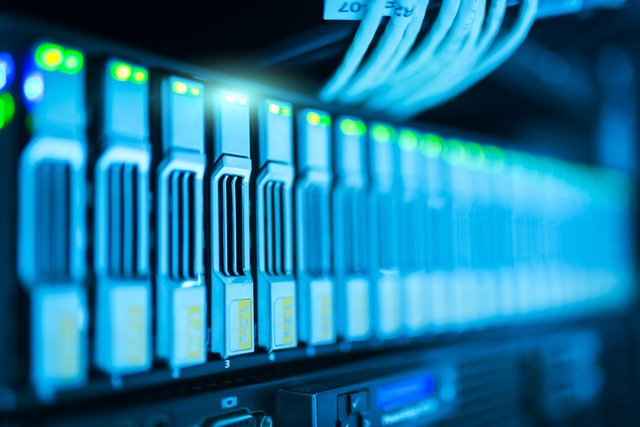IoT, Health and Blockchain [ENG-ITA]
The technology will be more and more advanced in the coming years and will help us monitor our modus vivendi more accurately and precisely and will allow us to take care of ourselves more effectively.
The Internet of Things, or IoT, is the set of interactions between devices and data recording and storage systems, called Data Centers, through the internet network. Data Centers receive the information recorded by the devices, sent over the network, process it through complex algorithms and calculation systems and return results.
In the healthcare sector, numerous wereable computing devices (electronic devices contained in clothing or ornaments) are emerging, linked above all to the world of fitness, but not only. These devices, for example wrist watches, are increasingly instruments for detecting a series of parameters such as heart rate, pressure, sweating levels. All this information, combined with each other, is an indication of the quality of an individual's health level and can contribute to the prevention of more serious pathologies.
A recent example is the case of Jorge Freire, a Brazilian advertiser, who was saved his life thanks to his Apple Watch. On December 27, 2019 Jorge's device detects that his heart rate is far above normal for an extended period of over 10 minutes. Alerted by the device, although he did not feel pain, Jorge went to the hospital for a checkup and following checks, an abnormal heart rate was detected which would soon turn into cardiac arrest. Jorge Freire has made his experience public on social channels.
What would be the role of the Blockchain?
All this collected data is stored in the data center, potentially vulnerable to hacker attacks or manipulated by those who would have an interest in hiding uncomfortable truths in order to see their product. The role of the Blockchain is to transcribe all information on a shared, transparent and secure register. The data entered in the register can be consulted by everyone and everyone could make their own contribution and contribute to safeguarding the health of all individuals.
Imagine if the blockchain was adopted by pharmaceutical companies for the exchange of information on research against rare diseases and above all the ease with which medicine could reach places that are not accessible today. A simple device connected to the network would be enough and life would be better for millions of people.
The future is technology at the service of man and the blockchain represents the basis for the implementation of innovation in the coming years!
ITA
La tecnologia sarà sempre più all'avanguardia nei prossimi anni e ci aiuterà a monitorare in modo più accurato e preciso il nostro modus vivendi e ci permetterà di prenderci cura di noi stessi in modo più efficace.
L'internet of Things, detto appunto IoT, è l'insieme d'interazioni tra dispositivi e sistemi di registrazione e conservazione dati, detti Data Center, mediante la rete d'internet. I Data Center ricevono le informazioni registrate dai dispositivi, inviati attraverso la rete, li elaborano mediante complessi algoritmi e sistemi di calcolo e restituiscono risultati.
Nell'ambito sanitario stanno nascendo numerosi device wereable computing (dispositivi elettronici contenuti in capi di abbigliamento od ornamento) legati soprattutto al mondo del fitness ma non solo. Questi dispositivi, ad esempio gli orologi da polso, sono sempre più strumenti di rilevazione di una serie di parametri come battito cardiaco, pressione, livelli di sudorazione. Tutti queste informazioni, combinate tra loro, sono indice della qualità del livello di salute di un individuo e possono contribuire alla prevenzione di patologia più gravose.
Un esempio recente è il caso di Jorge Freire, un pubblicitario brasiliano, il quale è stato salvato la vita per merito del suo Apple Watch. Il 27 dicembre 2019 il dispositivo di Jorge rileva che l' sua frequenza cardiaca è molto al disopra della norma per un periodo prolungato di oltre 10 minuti. Allertato dal dispositivo, seppur non avvertisse dolori, Jorge si dirige in ospedale per un controllo e a seguito di accertamenti è stata rilevata una frequenza cardiaca anomala che a breve si sarebbe tramutata in arresto cardiaco. Jorge Freire ha reso pubblica la sua esperienza su canali social.
Quale sarebbe il ruolo della Blockchain?
Tutti questi dati raccolti sono conservati in data center, potenzialmente vulnerabile ad attacchi hacker o manopolati da coloro che avrebbero interesse a nascondere verità scomode pur di vedere il proprio prodotto. Il ruolo della Blockchain è di trascrivere tutte le informazioni su un registro condiviso, trasparente e sicuro. I dati inseriti nel registro potranno essere consultabili da tutti e ognuno potrebbe fornire il proprio contributo e contribuire alla salvaguardia della salute di tutti gli individui.
Immaginate se la blockchain venisse adottata dalla case farmaceutiche per lo scambio d'informazioni sulla ricerca contro le malattie rare e soprattutto la facilità con cui la medicina potrebbe raggiungere posti oggi non accessibili. Basterebbe un semplice dispositivo connesso alla rete e la vita sarebbe migliore per milioni di persone.
Il futuro è la tecnologia a servizio dell'uomo e la blockchain rappresenta la base dell'attuazione dell'innovazione dei prossimi anni!

Un mondo decentralizzato sarebbe un mondo migliore...
Il problema è che più gli interessi sono forti e più la blockchain avrà filo da torcere...
Bel post @claudio83
!BEER
!DERANGED
!MARLIANS
!COFFEEA
!trdo
As a follower of @followforupvotes this post has been randomly selected and upvoted! Enjoy your upvote and have a great day!
This post is shared on Twitter https://twitter.com/Cloudsystem83/status/1215524396967788545?s=19
certo che è come dici tu...ma perchè non si fa di tutto per farla decollare benissimo soprattutto in medicina e farmacia?
Le grandi lobby. Il flusso di denaro e potere dietro la sanità è inimmaginabile. La blockchain potrebbe limare anche questo problema. Speriamo
Posted using Partiko Android
To listen to the audio version of this article click on the play image.

Brought to you by @tts. If you find it useful please consider upvoting this reply.